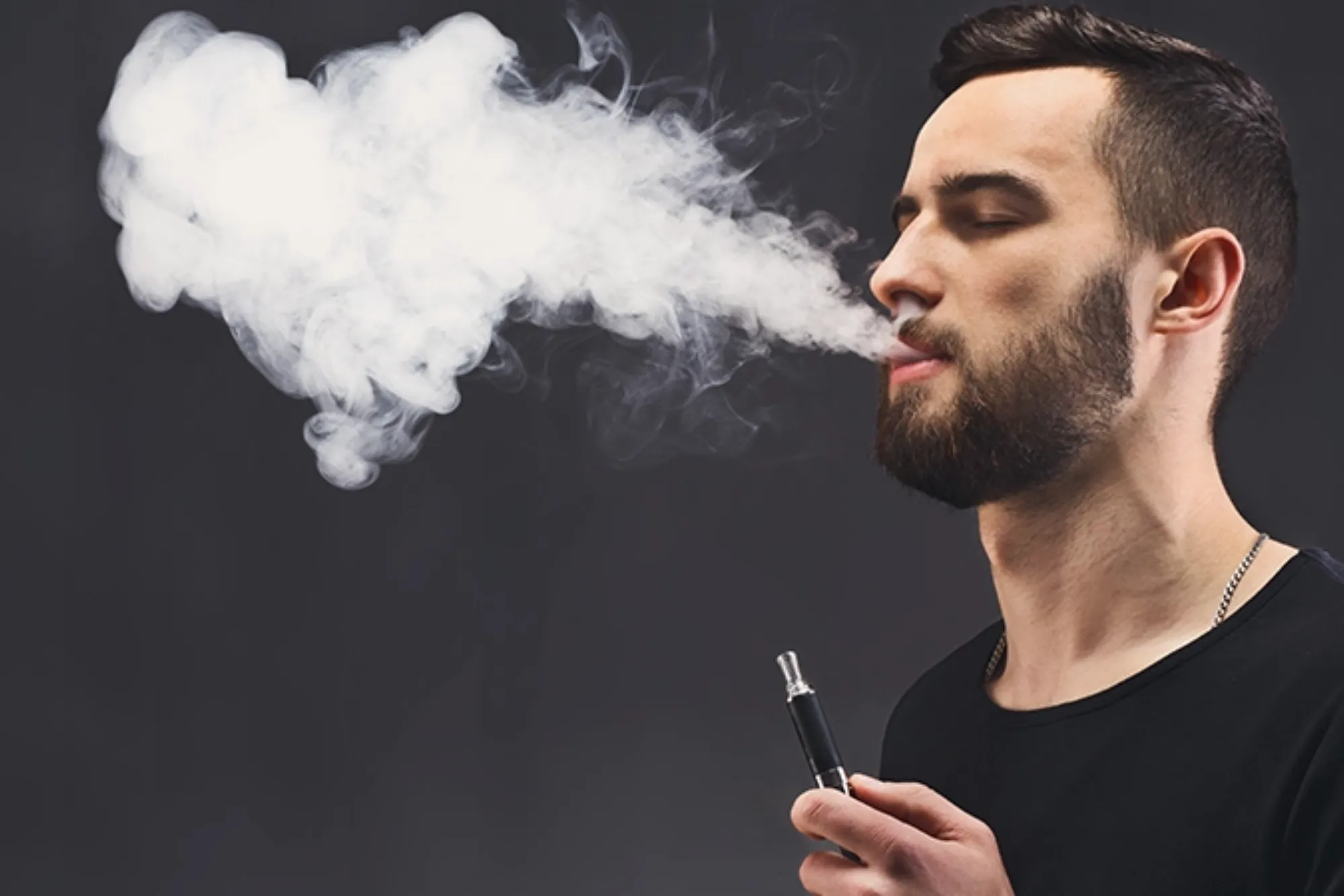The popularity of THC vape pens has surged, especially among those looking for a discreet, potent method to consume cannabis. As these vaping devices continue to gain traction, questions around their health implications and the risk of addiction are increasingly prevalent.
THC (tetrahydrocannabinol) is the primary psychoactive compound in cannabis, and when inhaled through vapes, it delivers rapid effects that many users find appealing. However, the addictive potential of THC vape products raises concerns. This article explores the science of THC, the mechanics of vaping, its health implications, and whether regular usage can lead to dependency and addiction.
What Are THC Vapes, and How Do They Work?
THC vapes are electronic devices specifically designed to heat THC oil, wax, or other cannabis concentrates, converting them into an inhalable vapor. Unlike traditional smoking, vaping does not burn the material, which is why it is often considered a less harmful alternative. THC vape pens usually consist of a battery, heating element, and a cartridge filled with THC concentrate. Once the device is activated, the concentrate is heated to a temperature that releases THC in vapor form, which users inhale.
- Types of THC Vape Products: Various products can be used in THC vapes, including THC oil, distillates, and wax concentrates. Each type has unique potencies and effects, allowing users to choose a product that best suits their preferences.
- Efficiency and Absorption: When inhaled, THC enters the bloodstream through the lungs, allowing for rapid absorption and immediate effects. This faster route of administration makes THC vape pens especially popular among individuals looking for an efficient way to experience the psychoactive effects of THC.
The Science Behind THC and Its Psychoactive Effects
THC affects the brain by binding to cannabinoid receptors, particularly CB1 receptors, in the endocannabinoid system (ECS). The ECS plays a critical role in regulating mood, memory, pain sensation, and appetite. When THC binds to CB1 receptors, it stimulates the release of dopamine, a neurotransmitter associated with pleasure, which is responsible for the euphoric “high” users feel.
This dopamine release is also why THC can have addictive qualities. Dopamine is part of the brain’s reward system, reinforcing behaviors that induce pleasurable feelings. With repeated use, the brain can become accustomed to the presence of THC, eventually relying on it for dopamine release. This dependency mechanism is what underpins the risk of addiction associated with THC vape use.
Can Using THC Vapes Lead to Addiction?

Addiction occurs when a substance interferes with the brain’s natural reward system, leading to dependency and an inability to control consumption despite adverse consequences. THC can be habit-forming, especially in higher concentrations, and prolonged use of high-potency products, like THC vape pens, may increase the risk of developing an addiction.
Key Factors Contributing to THC Addiction Potential
- Potency and Dose: The higher the concentration of THC, the greater the risk of addiction. THC vape products are often more potent than traditional flower forms, which can make dependency more likely with frequent use.
- Frequency of Use: Regular and prolonged use, especially in high doses, may condition the brain to expect THC, potentially leading to dependency.
- Individual Biology and Tolerance: Some people are more genetically predisposed to addiction, while others develop tolerance, needing higher doses of THC to achieve the same effects, which increases the risk of addiction over time.
- Mental Health Factors: People with mental health disorders, such as anxiety and depression, may turn to THC vapes for self-medication, which can lead to habitual use and dependency.
Symptoms and Signs of THC Dependency
Dependency on THC vape products may not always be immediately apparent, especially in comparison to substances like nicotine or alcohol. However, there are several symptoms and behaviors that may indicate a developing addiction:
- Increasing Tolerance: Needing higher doses to achieve the same effects
- Withdrawal Symptoms: When attempting to stop or reduce use, individuals may experience irritability, mood swings, sleep disturbances, and cravings
- Loss of Control: Finding it difficult to reduce or regulate usage, despite attempts to do so
- Neglecting Responsibilities: Skipping work, school, or social events to vape THC
- Prioritizing THC Over Other Activities: Choosing to vape over engaging in previously enjoyable activities
Health Impacts of THC Vaping

While there is still ongoing research, early studies indicate potential health risks associated with regular use of THC vape pen, including physical, mental, and respiratory health impacts. These risks are especially concerning given that THC vapes deliver high doses of THC directly to the lungs.
Physical Health Risks
- Respiratory Issues: Although THC vapes may eliminate some of the carcinogens produced by traditional smoking, vaping can still damage lung tissue. Studies have shown that regular vaping can lead to chronic bronchitis-like symptoms and impair lung function over time.
- Immune System Effects: Research indicates that prolonged THC use can weaken the immune system, making the body more susceptible to infections. The added chemicals and flavorings in vape products may exacerbate these effects.
Mental Health Implications
- Mood Disorders: Heavy THC use has been linked to an increased risk of depression, anxiety, and even psychosis. The potent, rapid delivery of THC in THC vape pens may heighten these risks.
- Memory and Cognitive Impairment: Regular THC consumption, especially in high doses, has been associated with memory problems and impaired cognitive functions, including attention and problem-solving.
- Dependency-Related Psychological Stress: Developing a dependency on THC vapes can lead to significant psychological distress, especially for individuals struggling to quit.
How to Recognize and Treat THC Vape Dependency
If you or someone you know may be experiencing dependency on THC vape pens, it is essential to approach the issue with awareness and seek appropriate help. Treatment options for THC dependency typically include behavioral therapies and support groups. Cognitive-behavioral therapy (CBT), for example, has shown efficacy in helping individuals recognize and change the behaviors that lead to dependence.
Steps to Address THC Dependency
- Consult a Healthcare Professional: Medical professionals can provide guidance on managing symptoms and help design a personalized treatment plan.
- Behavioral Therapies: Engaging in therapy can aid in building coping mechanisms and identifying the underlying causes of dependency.
- Support Groups: Support groups, such as Narcotics Anonymous, provide a community environment where individuals can share experiences and receive encouragement.
- Setting Personal Goals: Self-set goals, such as gradually reducing use, can help individuals manage cravings and minimize withdrawal symptoms effectively.
Preventing THC Vape Addiction: Responsible Usage Tips
Preventing dependency is best achieved by using THC vape pens responsibly. Here are some effective tips for keeping use within safe limits:
- Limit Frequency and Dosage: Avoid high doses and refrain from daily use to prevent developing a tolerance and dependency.
- Be Aware of Potency: Choose products with lower THC concentrations if you plan to use them regularly.
- Avoid Using THC to Cope with Stress: Instead, consider alternative coping mechanisms, like exercise, meditation, or talking to a friend or counselor.
- Monitor Your Usage: Keep track of your usage frequency and amount to ensure you stay within limits and are not developing patterns indicative of dependency.
- Avoid Mixing Substances: Combining THC vapes with alcohol or other drugs can increase the risk of dependency and other health complications.
Frequently Asked Questions
Q1. Can using a THC vape pen be safer than smoking cannabis?
Yes, vaping eliminates combustion byproducts, which can reduce the risks of inhaling carcinogens found in smoke. However, vaping is not without its risks, particularly concerning respiratory health and addiction.
Q2. Are withdrawal symptoms common with THC vapes?
Withdrawal symptoms can occur in those who have developed a dependency, particularly if they have been using high-potency THC vape products regularly. Symptoms may include irritability, cravings, and difficulty sleeping.
Q3. How can I tell if I’m becoming dependent on THC vapes?
Signs of dependency include needing to use more to feel the same effects, finding it hard to cut down, and experiencing withdrawal symptoms when not vaping.




